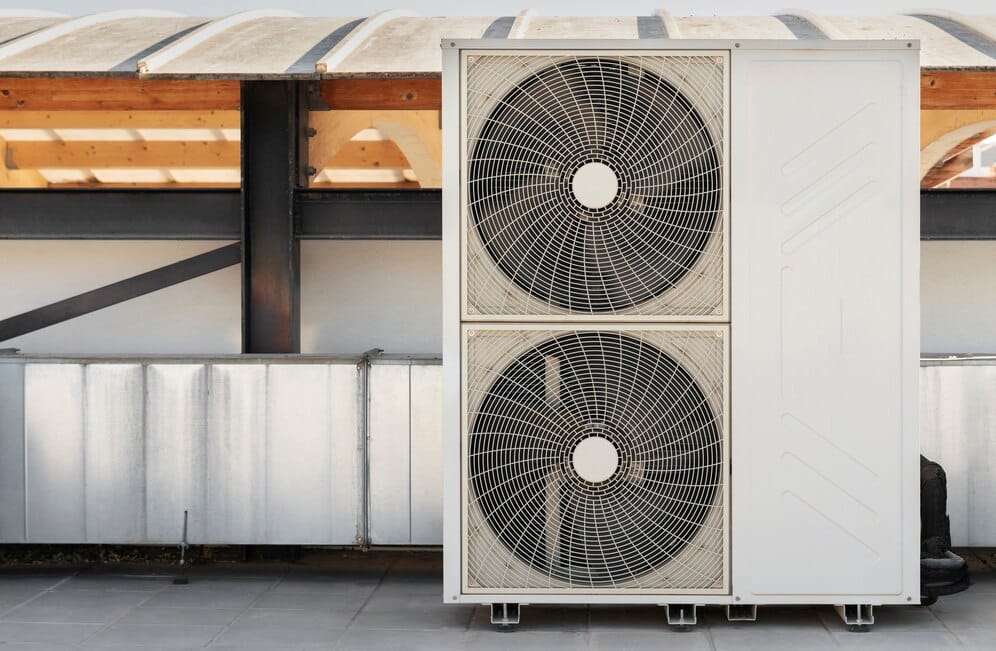In the quest for a more comfortable and energy-efficient home, adopting innovative heating and cooling solutions is key. Heat pumps are an excellent choice for homeowners seeking to create a pleasant living environment while keeping utility costs to a minimum. Their unique ability to transfer heat rather than generate it makes them a versatile and energy-saving option for both heating and cooling needs.
A single heat pump system can function as a heater during the cold months and an air conditioner during warmer seasons, eliminating the need for separate systems and providing a comprehensive climate control solution. Thanks to their energy-efficient operation, heat pumps can significantly reduce your energy consumption and contribute to a smaller carbon footprint. Moreover, these units are whisper quiet and require minimal maintenance compared to traditional HVAC systems.
In this comprehensive guide, we will delve into the world of heat pumps, exploring the benefits of this innovative technology and guiding you in selecting the right system for your home. We’ll discuss the principles behind heat pumps, the various types available on the market, and essential factors to consider before investing in one, such as your region’s climate and your home’s specific heating and cooling requirements.
At Furnace King Home Services, we pride ourselves on providing industry-leading heating, cooling, and air quality solutions tailored to each client’s unique needs. Our expert team of technicians is dedicated to helping you achieve optimal home comfort, and together, we’ll navigate the process of selecting and installing the perfect heat pump system for your living space. Join us as we explore the world of heat pumps and uncover the secrets to a comfortable, energy-efficient home for years to come.
How Heat Pumps Work and Their Benefits
Heat pumps function by extracting heat from one place and transferring it to another using refrigeration technology. During the heating season, they move heat from the outdoors into your home, whereas in cooling mode, they transfer heat from inside your home to the outdoors. The efficiency of heat pump systems is measured in terms of the Coefficient of Performance (COP), which gauges the heat output of the system compared to the electricity input. As a result, heat pumps often boast higher COP values and greater efficiency than conventional heating and cooling systems.
The benefits of heat pumps include:
1. Energy Efficiency: Heat pumps consume less energy compared to traditional systems, translating into lower utility bills and a reduced environmental impact.
2. Dual Functionality: Their capacity to provide both heating and cooling offers a versatile and convenient solution for your home’s year-round temperature regulation needs.
3. Consistent Comfort: Heat pumps distribute heat evenly and maintain a comfortable indoor climate without sudden fluctuations or cold spots.
4. Low Maintenance: Unlike combustion-based systems, heat pumps require minimal maintenance and are generally more durable.
Different Types of Heat Pumps
There are three main types of heat pumps:
1. Air-Source Heat Pumps: These systems extract heat from outdoor air, making them suitable for moderate climates. They are the most common type of heat pump and boast relatively low installation costs and high energy efficiency.
2. Ground-Source Heat Pumps: Also known as geothermal heat pumps, these systems harness heat from the ground, making them highly efficient and suitable for extreme temperature fluctuations. However, they can be more expensive to install due to the need for underground pipework.
3. Water-Source Heat Pumps: These systems draw heat from a nearby water source, such as a lake, pond, or well. While they can offer high energy efficiency, their applicability depends on the availability of a suitable water source and may involve higher installation costs.
Factors to Consider When Choosing a Heat Pump
Before investing in a heat pump, consider the following factors to make an informed decision:
1. Climate: The efficiency of heat pumps is highly dependent on the local climate. While they are suitable for moderate to cold climates, extreme temperatures can affect their performance. Therefore, assessing your region’s average temperatures and selecting a system is essential.
2. Home Insulation: A well-insulated home can reduce the demands placed on your heat pump, ensuring it operates efficiently. Investing in proper insulation and weatherproofing measures can significantly improve your heat pump’s performance and longevity.
3. System Size: Selecting the right-sized heat pump for your home is crucial for optimal comfort, performance, and energy efficiency. Consult a professional to assess your home’s heating and cooling requirements and recommend an appropriately sized system.
4. Efficiency Ratings: Evaluate the energy efficiency of different heat pump models based on their Seasonal Energy Efficiency Ratio (SEER), Heating Season Performance Factor (HSPF), and Energy Efficiency Ratio (EER), and choose a system that meets your specific needs.
Heat Pump Maintenance and Lifespan
Proper care and maintenance are essential to extend your heat pump’s lifespan and maintain its efficiency:
1. Regular Cleaning: Ensure that the outdoor unit is free of debris, such as leaves or dirt, and clean the filters and coils according to the manufacturer’s guidelines.
2. Scheduled Maintenance: Schedule annual maintenance services with a professional to inspect your system, identify potential issues, and address them before they escalate.
3. Proper Use: Following correct usage and temperature settings can prevent unnecessary strain on your heat pump and ensure it operates efficiently.
Conclusion:
Heat pumps are an innovative and energy-efficient solution for both heating and cooling needs, offering numerous benefits, such as versatility, low maintenance, and consistent comfort. By understanding the various types of heat pumps, assessing your home’s specific requirements, and ensuring proper maintenance, you can enjoy a comfortable and energy-efficient living space year-round.
At Furnace King Home Services, our team of experts is committed to helping you select, install, and maintain the perfect heat pump system for your home. Let us guide you through the process and assist you in maximizing your home’s energy efficiency and comfort. Contact us today to schedule a consultation and discover how we can help enhance your living experience with a state-of-the-art heat pump system.










